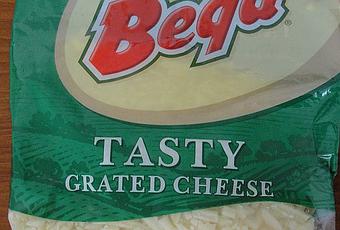

Can also mean to catch up with someone.Įg. Have a quick conversation with someone, often about a particular topic. ‘I put the thingo on your desk.’ Touch base (2): ‘Oh no! I’ve completely stuffed up this assignment!’ ThingoĪ term used to refer (usually) to an object, when you don’t remember its name.Įg. (1): ‘I ate too much food – I’m stuffed.’Įg.

AUSTRALIAN LINGO CHOOK FULL
This term has two meanings: (1) To be full (2) To ruin something.Įg. ‘He keeps asking me questions about my life – he’s such a stickybeak!’ Stuffed ‘When you finish that project, do you mind if I have a squiz?’ StickybeakĪ nosy person, someone interested in other people’s business.Įg. ‘I’ll be back in 10 minutes – just going to go for a smoko.’ SquizĮg. ‘There’s not enough room for me to sit here – can you scoot over?’ SmokoĪ short break from work to have a cigarette.Įg. ‘I might buy some Maccas for lunch.’ Scoot overĪsking someone to move over or to the side.Įg. ‘I love this author, so buying their new book was a no-brainer!’ MaccasĮg. Something obvious or requiring little thought.Įg. ‘Did you watch the footy last night?’ No-brainer Aerial Ping Pong - derogatory for Australian Rules football ankle biter - small child arvo. ‘I am deadest on going to the concert.’ FootyĮg. Be prepared and know the slang so you wont look like a drongo. ‘My dad can be a bit of a dag.’ DeadsetĮg. APC Standard is the Armoured Personnel Carrier. ‘I’m going to chuck a sickie tomorrow.’ DagĮg. AUStralian CAMouflage’ in short is called as AusCam. To call in sick for work, particularly when you aren’t actually sick.Įg. ‘I might grab a chook for dinner.’ Chuck a sickie ‘The warehouse was chocka block full of boxes.’ Chokkie or ChoccyĮg. ‘He never does any work – he’s a total bludger.’ Chocka blockĮg. To help you out, we’ve put together a list of common Australian workplace slang phrases and terms, so you can be prepared! ArvoĮg. If you’re here as an international student, this may make many conversations difficult to follow – particularly in the workplace. These are slow to make their way into mainstream Australian English, but the word deadly meaning “excellent, strong” is now quite widely understood in Australia, and I have observed some more widespread use of yumob as a second person plural pronoun.In Australia, there’s a slang term for almost everything. Indigenous Australians have created varieties of English for use among their peers which are rich in innovation. If we look at some of the more marginalised groups in Australia, we can see a wealth of linguistic innovation and new phrases and even dialects of Australian English. Much American slang, now making its way into other varieties of English including Australian English, originated with the riverboats of the Mississippi, and the trappers and prospectors of the West, not among the educated middle class in the cities. The slang that we think of as typically British, or typically American, was by and large created by underclasses who were marginalised in some way. This article in the Daily Mail even seeks to blame Australian English for the prevalence of what is known as High Rising Terminal inflection, or upspeak (rising pitch at the end of a declarative sentence), saying that this trend among younger Brits is probably caused by Neighbours (it isn’t, and it never has been uniquely Australian).īut the middle class is not the place to be looking for linguistic innovation in the first place. This Aussie philosophy has been exported to the US. No worries has become prevalent in the USA in the last decade, especially on the West Coast. Grubs up Eating insects is growing in popularity. It seems some elements of Australian English have been exported to our more populous neighbours. More Aussie lingo Bung Furphy Chook Stroppy. General Australian is hooked into Global English – its users communicate frequently with users of Standard American or British English.īy sheer weight of numbers, on the global English stage the Australian vernacular tends to be inundated by British and especially American English. The three traditional varieties of Australian English: Broad, Cultivated, and General, are converging. It is undoubtedly true that white working and middle class Australians are producing less slang than their forebears. As the cultural makeup of Australia changes, so will the provenance of new Australian words and phrases. Their descendants are no longer generally marginalised, and as their status has risen, their linguistic behaviour has become that of the mainstream. The Cockney and Irish settlers were the colonial underclass. The Aussie “tucker box” is perhaps more British or Irish.


 0 kommentar(er)
0 kommentar(er)
